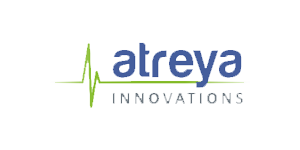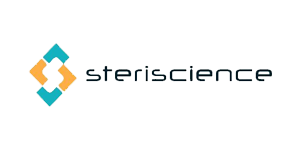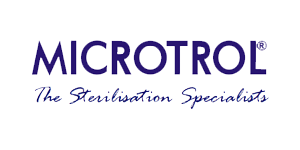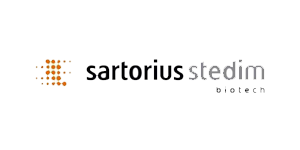
6 Critical Truths You Need to Know About Industrial Gas Purity Testing
Industrial gas purity testing is essential in industries like pharmaceuticals, food processing, aerospace, and manufacturing, where the quality and composition of gases play a pivotal role in maintaining product integrity and operational safety. Ensuring gas purity is not only a regulatory requirement but also a fundamental aspect of preserving the effectiveness of processes and protecting the health and safety of workers. In this blog, we will explore six important truths you need to know about industrial gas purity testing.
1. Gas Purity Can Impact Product Quality and Safety
The purity of industrial gases is directly linked to the quality of the products being produced. Even trace amounts of impurities in gases can affect the effectiveness of sterilization processes, chemical reactions, or manufacturing operations. For example, in the pharmaceutical industry, impurities in gases like nitrogen or oxygen can compromise product sterility and lead to costly contamination risks.
Why It Matters: Gas purity testing ensures that only high-quality gases are used in critical processes, minimizing the risk of product defects, contamination, or safety hazards.
Read More: What You Need to Know About Compressed Air Testing: A Comprehensive Guide
2. Different Gases Require Different Testing Methods
Not all gases are the same, and each industrial gas requires specific testing methods to ensure its purity. For example, oxygen, nitrogen, carbon dioxide, and helium each have unique properties that require tailored testing approaches. While some gases can be analyzed using simple methods like gas chromatography, others may need more advanced techniques like mass spectrometry to accurately detect impurities at trace levels.

Why It Matters: Understanding the specific testing methods for each type of gas ensures that you obtain accurate purity results. Using the wrong test method can lead to inaccurate readings and unreliable results.
3. Regulatory Compliance is Non-Negotiable
In many industries, gas purity is not just a matter of quality control but also a matter of regulatory compliance. Organizations like the FDA, ISO, and OSHA set stringent standards for gas purity, particularly in industries like pharmaceuticals, food production, and healthcare. Failing to meet these regulatory standards can result in costly fines, production delays, or even the suspension of operations.
Why It Matters: Ensuring your gas purity testing is in line with regulatory requirements helps you avoid legal issues, maintain market access, and ensure that your products meet safety standards. Regular testing and proper documentation are essential for compliance.
4. Real-Time Monitoring Can Prevent Purity Issues Before They Escalate
One of the most effective ways to ensure continuous gas purity is through real-time monitoring. By using automated systems to monitor gas purity levels during production or distribution, any deviations from the desired purity can be detected immediately. This allows for prompt corrective action, preventing potential issues from escalating into costly problems.
Why It Matters: Real-time monitoring not only improves operational efficiency but also helps prevent production downtime, product contamination, and safety incidents. Implementing these systems can save time, reduce risks, and improve the overall quality control process.
Read More: What You Need to Know About Industrial Gas Purity Testing: A Comprehensive Guide
5. Gas Storage and Distribution Systems Can Impact Purity
The purity of industrial gases can degrade if stored or transported improperly. Contamination can occur from poor storage conditions, damaged cylinders, or leaks in the distribution system. Even tiny amounts of moisture, air, or other contaminants in the storage or distribution system can compromise the purity of gases like nitrogen, oxygen, or hydrogen.
Why It Matters: Proper storage and maintenance of gas cylinders and pipelines are crucial to maintaining gas purity. Regular inspections, leak checks, and preventive maintenance can help avoid contamination issues and ensure that gases meet the required purity standards.
Read More:10 Key Challenges in Industrial Gas Purity Testing and How to Overcome Them
6. Not All Impurities Are Easily Detectable
Some impurities in industrial gases, such as trace-level contaminants, are difficult to detect without the proper tools. Gases like oxygen and nitrogen may contain contaminants that are present in parts per million (ppm) or even parts per billion (ppb), which are not easily detectable with traditional methods. As gas purity requirements become stricter, the ability to detect these minute levels of impurities becomes increasingly important.
Why It Matters: Advanced analytical techniques, such as mass spectrometry and gas chromatography, are required to detect impurities at very low levels. Without these sensitive methods, you might miss contaminants that could affect product quality or safety.
Conclusion
Industrial gas purity testing is a crucial aspect of maintaining product quality, regulatory compliance, and operational safety across various industries. By understanding the unique challenges and requirements of gas purity testing, companies can implement the right testing methods, invest in proper monitoring systems, and ensure that gases meet the necessary purity standards.
How Prewel Labs Can Help
At Prewel Labs, we provide expert industrial gas purity testing services tailored to your specific needs. Here’s how we can support you:

- Customized Testing Solutions: We offer specialized testing methods for a wide range of gases, ensuring that your gas purity meets industry standards and regulatory requirements.
- Advanced Analytical Tools: Our state-of-the-art testing equipment, including gas chromatography and mass spectrometry, ensures accurate detection of even trace-level contaminants.
- Regulatory Expertise: We stay up-to-date with the latest industry regulations and compliance standards to help you meet all purity requirements.
- Real-Time Monitoring: We provide real-time monitoring systems to continuously track gas purity and quickly detect any deviations that could impact production.
Contact Prewel Labs today to learn how our industrial gas purity testing services can ensure the quality and safety of your products.


























